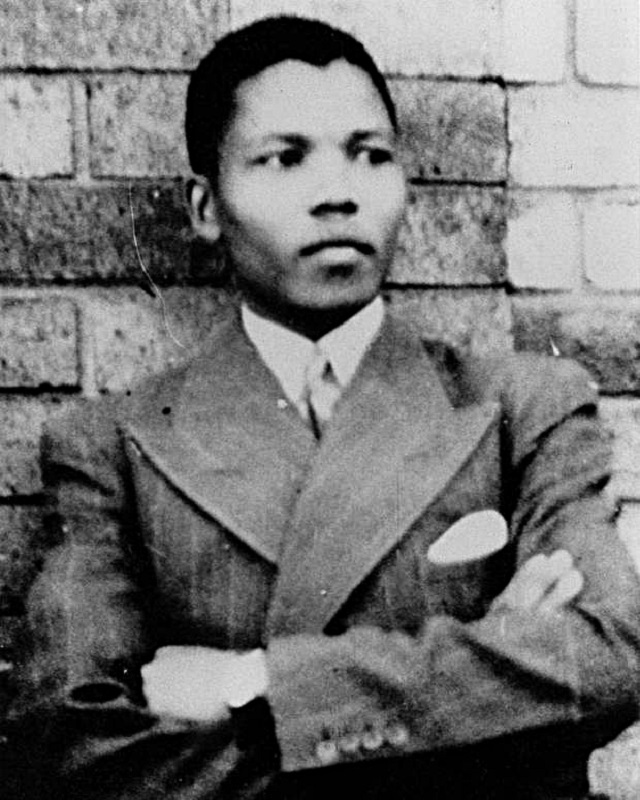Want to see more articles like this? Chip in to rabble.ca and change the conversation on politics in Canada.
Nelson Mandela was a black African revolutionary freedom fighter who for much of his life embraced armed struggle to overthrow the government of his country, and Texas Senator Ted Cruz reveres him. Why not? The most reactionary forces in American life have already appropriated Dr. Martin Luther King as one of their own. Why shouldn’t Mr. Cruz, perhaps the most dangerous force in American politics, embrace Mr. Mandela as “an inspiration for defenders of liberty around the globe”? After all, according to liberty-loving Republicans like presidential candidate Rick Santorum, Obamacare is America’s apartheid.
The truth is for most of his life most right-thinking people lazily dismissed Mr. Mandela and his ANC party as just another subversive gang of Commie terrorists. Most western governments were either indifferent or actively antagonistic, conservative commentators were ferociously hostile, and almost the entire the corporate world considered him a menace. In the 1980s especially, when the apartheid government launched ferocious repression at home, military aggression against its Africa neighbours and a last-gasp propaganda campaign to smear the ANC, it was mostly ordinary people in western countries — the great anti-apartheid movement — that backed the ordinary black people of South Africa in their audacious resistance.
Today everybody and their Aunt Fanny simply adores the late Nelson Mandela and can barely rave about him too extravagantly. ‘Twas not always thus, as Brian Mulroney helpfully reminds us of both Margaret Thatcher and Ronald Reagan. Indeed, their entire governments were mobilized to thwart Mr. Mandela and to offer succour to the apartheid government, not excluding a warm working relationship between Mr. Reagan’s CIA and apartheid’s ruthless security and spy apparatus.
Canada too might be rather less self-congratulatory on the Mandela file. It’s true John Diefenbaker took an honourable approach but Liberals Lester Pearson and Pierre Trudeau both talked the talk but failed to walk the walk, as Professors Cranford Pratt and Linda Freeman have documented.
Then there were those in Canada who tried to undermine Nelson Mandela by promoting instead the “right” kind of black South African. That proved to be Mangosuthu Buthelezi, a prominent South African politician and close collaborator with the apartheid regime. Mr. Buthelezi, with his Zulu-based political party and youth militia financed and armed by the apartheid regime, did all in his power to sabotage the ANC and its multiracial dream. In the end, he came perilously close to succeeding, unleashing a savage war — I’m afraid that’s the right word — against the ANC that left thousands of Africans slaughtered on both sides.
Mr. Buthelezi had prominent Canadian friends. One was the very conservative Fraser Institute, which in 1986 sponsored “Dr. M. G. Buthelezi” — he had an honorary degree — when he spoke to the Canadian Club in Toronto.
Another was Conrad Black, who last week could not praise Nelson Mandela too effusively. But in 1990, with Mr. Mandela finally a free man, Mr. Black also chose to sponsor Mr. Buthelezi at a gathering at the exclusive Toronto Club. Of course there’s no accounting for taste; Mr. Black also thinks Rob Ford is a “very nice man” and may not be “a bad influence to youth.”
Likewise, as Linda Freeman pointed out in The Globe — and a shout-out to The Globe for printing it — this paper in 1985 described Mr. Buthelezi as “authentic a black leader as Nelson Mandela.” Not until the year before Mr. Mandela was swept into office did The Globe acknowledge that Mr. Buthelezi was a “spoiler,” to say the very least.
The late Peter Worthington of The Sun newspapers, in his time perhaps Canada’s most prominent conservative journalist, was also not a big fan of Mr. Mandela. In fact in 1988, only two years before Mr. Mandela’s release, Mr. Worthington released an incendiary video called “The ANC Method: Violence,” part of the world-wide propaganda campaign that had been launched by the apartheid regime. The video included blatant distortions which, as I wrote at the time, Mr. Worthington confessed to me he actually knew but just didn’t bother mentioning.
In the early days of the ultra-conservative Reform Party — the late 1980s and early 1990s — a significant number of its well-known backers made support for the apartheid regime a major priority, as documented in books by Trevor Harrison and Murray Dobbin. But the issue soon faded as a serious public preoccupation.
Finally, there are the roles of Brian Mulroney and Joe Clark in the Mandela saga. In a previous article, I documented some of the actual record, which tends to suggest we should curb our enthusiasm somewhat about their contribution, particularly in regard to Mr. Clark. But it must be acknowledged that Mr. Mandela himself appreciated them both greatly, though not even Madiba was always right. For those who want to learn more, I recommend the extensive publications of Prof. John Saul, a Canadian who made himself one of the world’s leading experts on South Africa.
Nelson Mandela was an unwavering freedom fighter, and many powerful people long opposed both his goal and his tactics. Now so many suffer from — or wallow in — a very convenient apartheid amnesia.
This article originally appeared in The Globe and Mail.
Image: wikimedia commons



